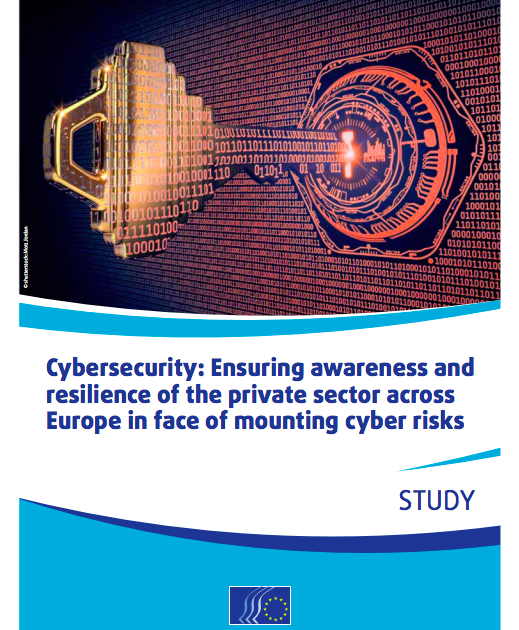This study on cybersecurity, commissioned by the European Economic and Social Committee (EESC), examines the impact of cyber-related threats and challenges on corporate Europe and the degree of engagement of European businesses in tackling issues at stake. Although the new digitization era offers huge economic and social opportunities, it also changes the nature and magnitude of cyber risks and creates new vulnerabilities cyber attackers seek to exploit. European countries and businesses are targeted with growing frequency. Many companies, however, remain unaware or seem to underestimate, and even neglect the vulnerabilities they are facing through and in cyberspace. An open, safe and secure cyberspace is indispensable for the reliable functioning of European economies.
Recognizing the importance of corporate cybersecurity for the economic wellbeing of Europe, this study presents the challenges European companies face in implementing good cybersecurity practices and offers recommendations on how to overcome them. The study first looks into the current cyber threat environment, and assesses its impact on the private sector. The second part addresses the level of awareness, preparedness and resilience against mounting cyber threats at the European, national and corporate level. Third, key challenges and bottlenecks that inhibit implementation of good cybersecurity practices are presented and analyzed. The final part outlines good practices and inspiring examples observed across the EU that could help overcome the aforementioned bottlenecks.
Authors: Katarina Kertysova, Erik Frinking, Koen van den Dool, Aleksandar Maričić, Kumar Bhattacharyya
The study can be accessed here.





